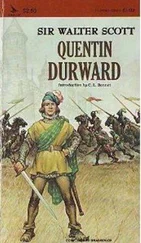Walter Scott - Letters on Demonology and Witchcraft
Здесь есть возможность читать онлайн «Walter Scott - Letters on Demonology and Witchcraft» весь текст электронной книги совершенно бесплатно (целиком полную версию без сокращений). В некоторых случаях можно слушать аудио, скачать через торрент в формате fb2 и присутствует краткое содержание. Жанр: История, на английском языке. Описание произведения, (предисловие) а так же отзывы посетителей доступны на портале библиотеки ЛибКат.
- Название:Letters on Demonology and Witchcraft
- Автор:
- Жанр:
- Год:неизвестен
- ISBN:нет данных
- Рейтинг книги:4 / 5. Голосов: 1
-
Избранное:Добавить в избранное
- Отзывы:
-
Ваша оценка:
- 80
- 1
- 2
- 3
- 4
- 5
Letters on Demonology and Witchcraft: краткое содержание, описание и аннотация
Предлагаем к чтению аннотацию, описание, краткое содержание или предисловие (зависит от того, что написал сам автор книги «Letters on Demonology and Witchcraft»). Если вы не нашли необходимую информацию о книге — напишите в комментариях, мы постараемся отыскать её.
Letters on Demonology and Witchcraft — читать онлайн бесплатно полную книгу (весь текст) целиком
Ниже представлен текст книги, разбитый по страницам. Система сохранения места последней прочитанной страницы, позволяет с удобством читать онлайн бесплатно книгу «Letters on Demonology and Witchcraft», без необходимости каждый раз заново искать на чём Вы остановились. Поставьте закладку, и сможете в любой момент перейти на страницу, на которой закончили чтение.
Интервал:
Закладка:
Poor Robin, however, between whom and King Oberon Shakespeare contrives to keep a degree of distinct subordination, which for a moment deceives us by its appearance of reality, notwithstanding his turn for wit and humour, had been obscured by oblivion even in the days of Queen Bess. We have already seen, in a passage quoted from Reginald Scot, that the belief was fallen into abeyance; that which follows from the same author affirms more positively that Robin's date was over:—
"Know ye this, by the way, that heretofore Robin Goodfellow and Hobgoblin were as terrible, and also as credible, to the people as hags and witches be now; and in time to come a witch will be as much derided and condemned, and as clearly perceived, as the illusion and knavery of Robin Goodfellow, upon whom there have gone as many and as credible tales as witchcraft, saving that it hath not pleased the translators of the Bible to call spirits by the name of Robin Goodfellow, as they have diviners, soothsayers, poisoners, and cozeners by the name of witches." [46] [46] Reginald Scot's "Discovery of Witchcraft," book vii. chap, ii.
In the same tone Reginald Scot addresses the reader in the preface:—"To make a solemn suit to you that are partial readers to set aside partiality, to take in good part my writings, and with indifferent eyes to look upon my book, were labour lost and time ill-employed; for I should no more prevail herein than if, a hundred years since, I should have entreated your predecessors to believe that Robin Goodfellow, that great and ancient bull-beggar, had been but a cozening merchant, and no devil indeed. But Robin Goodfellow ceaseth now to be much feared, and Popery is sufficiently discovered; nevertheless, witches' charms and conjurers' cozenage are yet effectual." This passage seems clearly to prove that the belief in Robin Goodfellow and his fairy companions was now out of date; while that as to witchcraft, as was afterwards but too well shown, kept its ground against argument and controversy, and survived "to shed more blood."
We are then to take leave of this fascinating article of the popular creed, having in it so much of interest to the imagination that we almost envy the credulity of those who, in the gentle moonlight of a summer night in England, amid the tangled glades of a deep forest, or the turfy swell of her romantic commons, could fancy they saw the fairies tracing their sportive ring. But it is in vain to regret illusions which, however engaging, must of necessity yield their place before the increase of knowledge, like shadows at the advance of morn. These superstitions have already survived their best and most useful purpose, having been embalmed in the poetry of Milton and of Shakespeare, as well as writers only inferior to these great names. Of Spenser we must say nothing, because in his "Faery Queen" the title is the only circumstance which connects his splendid allegory with the popular superstition, and, as he uses it, means nothing more than an Utopia or nameless country.
With the fairy popular creed fell, doubtless, many subordinate articles of credulity in England, but the belief in witches kept its ground. It was rooted in the minds of the common people, as well by the easy solution it afforded of much which they found otherwise hard to explain, as in reverence to the Holy Scriptures, in which the word witch, being used in several places, conveyed to those who did not trouble themselves about the nicety of the translation from the Eastern tongues, the inference that the same species of witches were meant as those against whom modern legislation had, in most European nations, directed the punishment of death. These two circumstances furnished the numerous believers in witchcraft with arguments in divinity and law which they conceived irrefragable. They might say to the theologist, Will you not believe in witches? the Scriptures aver their existence;—to the jurisconsult, Will you dispute the existence of a crime against which our own statute-book, and the code of almost all civilized countries, have attested, by laws upon which hundreds and thousands have been convicted, many or even most of whom have, by their judicial confessions, acknowledged their guilt and the justice of their punishment? It is a strange scepticism, they might add, which rejects the evidence of Scripture, of human legislature, and of the accused persons themselves.
Notwithstanding these specious reasons, the sixteenth and seventeenth centuries were periods when the revival of learning, the invention of printing, the fearless investigations of the Reformers into subjects thought formerly too sacred for consideration of any save the clergy, had introduced a system of doubt, enquiry, disregard of authority, when unsupported by argument, and unhesitating exercise of the private judgment, on subjects which had occupied the bulls of popes and decrees of councils. In short, the spirit of the age was little disposed to spare error, however venerable, or countenance imposture, however sanctioned by length of time and universal acquiescence. Learned writers arose in different countries to challenge the very existence of this imaginary crime, to rescue the reputation of the great men whose knowledge, superior to that of their age, had caused them to be suspected of magic, and to put a stop to the horrid superstition whose victims were the aged, ignorant, and defenceless, and which could only be compared to that which sent victims of old through the fire to Moloch.
The courageous interposition of those philosophers who opposed science and experience to the prejudices of superstition and ignorance, and in doing so incurred much misrepresentation, and perhaps no little ill-will, in the cause of truth and humanity, claim for them some distinction in a work on Demonology. The pursuers of exact science to its coy retreats, were sure to be the first to discover that the most remarkable phenomena in Nature are regulated by certain fixed laws, and cannot rationally be referred to supernatural agency, the sufficing cause to which superstition attributes all that is beyond her own narrow power of explanation. Each advance in natural knowledge teaches us that it is the pleasure of the Creator to govern the world by the laws which he has imposed, and which are not in our times interrupted or suspended.
The learned Wier, or Wierus, was a man of great research in physical science, and studied under the celebrated Cornelius Agrippa, against whom the charge of sorcery was repeatedly alleged by Paulus Jovius and other authors, while he suffered, on the other hand, from the persecution of the inquisitors of the Church, whose accusation against this celebrated man was, that he denied the existence of spirits, a charge very inconsistent with that of sorcery, which consists in corresponding with them. Wierus, after taking his degree as a doctor of medicine, became physician to the Duke of Cleves, at whose court he practised for thirty years with the highest reputation. This learned man, disregarding the scandal which, by so doing, he was likely to bring upon himself, was one of the first who attacked the vulgar belief, and boldly assailed, both by serious arguments and by ridicule, the vulgar credulity on the subject of wizards and witches.
Gabriel Naudé, or Naudæus, as he termed himself, was a perfect scholar and man of letters, busied during his whole life with assembling books together, and enjoying the office of librarian to several persons of high rank, amongst others, to Queen Christina of Sweden. He was, besides, a beneficed clergyman, leading a most unblemished life, and so temperate as never to taste any liquor stronger than water; yet did he not escape the scandal which is usually flung by their prejudiced contemporaries upon those disputants whom it is found more easy to defame than to answer. He wrote an interesting work, entitled "Apologie pour les Grands Homines Accusés de Magie;" and as he exhibited a good deal of vivacity of talent, and an earnestness in pleading his cause, which did not always spare some of the superstitions of Rome herself, he was charged by his contemporaries as guilty of heresy and scepticism, when justice could only accuse him of an incautious eagerness to make good his argument.
Читать дальшеИнтервал:
Закладка:
Похожие книги на «Letters on Demonology and Witchcraft»
Представляем Вашему вниманию похожие книги на «Letters on Demonology and Witchcraft» списком для выбора. Мы отобрали схожую по названию и смыслу литературу в надежде предоставить читателям больше вариантов отыскать новые, интересные, ещё непрочитанные произведения.
Обсуждение, отзывы о книге «Letters on Demonology and Witchcraft» и просто собственные мнения читателей. Оставьте ваши комментарии, напишите, что Вы думаете о произведении, его смысле или главных героях. Укажите что конкретно понравилось, а что нет, и почему Вы так считаете.









